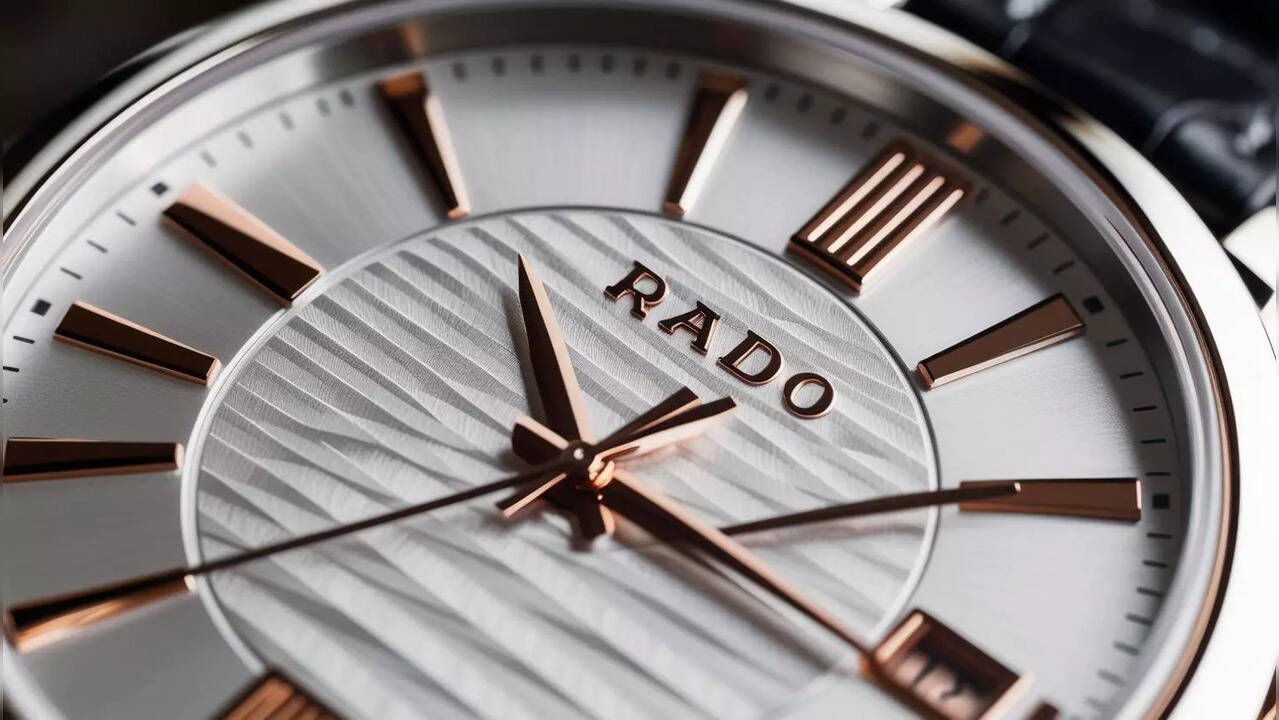India is the top market for Swiss luxury watch brand Rado, says CEO Adrian Bosshard
India has emerged as the top market for Swiss luxury watch brand Rado, underscoring the country's growing appetite for high-end timepieces.
According to Adrian Bosshard, Global CEO of Rado, the brand’s journey in India dates back to the 1950s and 1960s, but it is in the last few years that the market has truly taken off.
"India became, not only for Rado but for the whole luxury industry, a very important area," Bosshard stated. "And now, since the last two years, India became even the number one market for Rado globally, which is really an amazing thing, making us proud to see our strong roots grow at such an important level in this great country."
Bosshard noted that Indian consumers have become more discerning and knowledgeable about watchmaking. Their appreciation for craftsmanship, technology, and distinctive aesthetics has strengthened Rado’s position in the market.
"The Indian customer has become very mature, with a lot of knowledge and a strong connection to the Rado brand," Bosshard said. "With a growing population and economy, India forms a crucial base for our future growth," he added.
While tier-I cities remain central to Rado’s success, the brand is witnessing substantial growth in smaller towns. The appeal of luxury watches is spreading beyond metropolitan hubs, with tier-II, tier-III, and even tier-IV cities contributing to the brand’s expansion.
"The desire to own something unique and exclusive, like a Rado watch, is increasing in smaller cities as well," Bosshard observed. "We do not differentiate our approach based on location—whether a customer is from a big city or a smaller town, we want them to enjoy the Rado experience across India."
Despite the rise of e-commerce, Rado’s primary sales channel remains physical retail stores. These outlets allow customers to experience the brand’s values, emotions, and craftsmanship firsthand. While online sales constitute a small percentage of overall business, in-store interactions remain vital for customer engagement and brand positioning.
Below is the verbatim transcript of the interview.
Q: India is an emerging market with a young, rapidly growing population as well. So how do you see India fitting into Rado’s, long term global strategy?
Bosshard: We have our first roots going back to the 50s, and in the 60s of the last century, we had developed an important network of service center and distribution. And during the last years, India became, not only for Rado, but for the whole luxury industry, a very important area. And during the last three years, really, in India, we were able to make even the next important step that will mean more and more Indian customers, they are enjoying our designs, our material strengths and our uniqueness. And now, since the last two years, India became even the number one market for Rado globally, which is really an amazing thing, which make us really proud to see that our strong roots grow on a such important level here in this great, important country.
Q: What role does Indian market play in your overall growth plans going forward?
Bosshard: We have invested significant amounts of money and also competence in the developments of our products in the last decades. And it's really a pleasure to see that the Indian customers, they recognise all these values in terms of watchmaking competence, in the movement side, and also in the materials and in the design field. That means the Indian customer became a very mature customers with a lot of knowledge and a lot of relation with the Rado brand during the last years. And this, of course, helped us to really be the loved brand here for the Indian customers and a country with a growing population and also a growing economy. Of course, it's an important base for our future grow here in this country.
Q: Some of the luxury products are not just popular in the big cities and big towns of India, but also there is an appeal, and there is a market for these aspirational products in the Indian smaller towns and the rural markets as well. So how is Rado catering to some of these markets and some of these regions?
Bosshard: Today we are doing, let's say, two thirds of our business in tier-I cities. But we see also an important growth in tier-II, tier-III, and even tier-IV cities. And in the end, the desire and the willingness to buy something unique, something exclusive, as the Rado watch became larger and larger, also in smaller cities in India. So therefore, especially also for the product development and also for the communication, we are not doing a separation about customer from a tier-I city or tier-II or III city. A customer is a customer, and we want to enjoy this customer all over India.
Of course, a small percentage of the business we are doing, even in the e-commerce channels, but the biggest part is done in the brick and mortar stores because there we can really transfer the values, the emotion and also the competence of the Rado brand through the brick and mortar stores.











